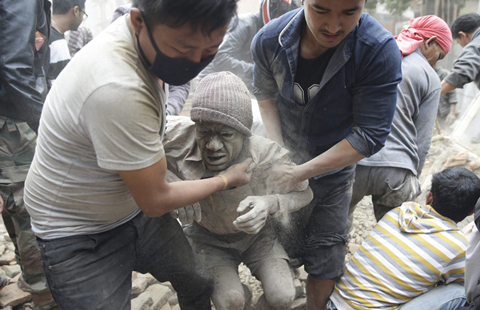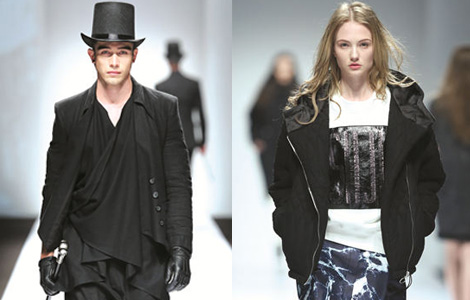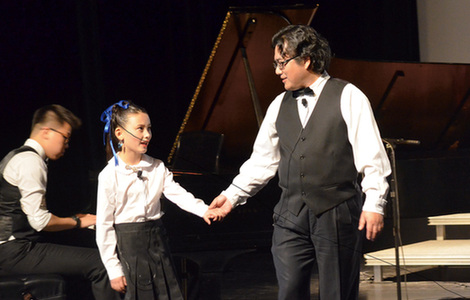Abe's US trip: sense or sensibility?
Updated: 2015-04-26 16:02
(Xinhua)
|
||||||||
BEIJING - Sensibility is enticing, but when it comes to national and international interests, a wise man always chooses sense over sensibility, and pragmatism over Micawberism.
As Japanese Prime Minister Shinzo Abe will make a high-profile visit to the United States beginning Sunday, he should hold up rightist, nationalist and revisionist impulses, and roll out more prudent and thus wiser statements this time.
On the Capital Hill, under the global media spotlight, he should seize that opportunity to show remorse over Japan's rightist swagger in recent years and make a long-awaited apology for his country's wartime crimes, loud and clear.
But according to media reports on the draft of his upcoming address to the US legislature, the piece, like other public statements he has made so far, is unrepentedly preoccupied with the game of words on history and platitude rhetoric of containing China.
Moreover, Abe had already said he intended not to repeat the apologies made his predecessors even in his World War II statement to be delivered later this year.
These unbridled moves, out of speculative calculation to pander to the Japanese right-wingers, are actually a slap in the face of Washington.
Like other allied countries, particularly Asian nations, the United States itself also suffered huge casualties from Japan's ghastly assaults during that war and made incredible sacrifice in defeating the island country.
It's high time that Abe resorted to prudence rather than nationalist impulsion in the week-long US visit, and avoided sending defiant messages on history and territorial issues that contradict his previous self-claim as a peace defender.
And for its part, Washington should also refrain from the urge to take Tokyo as an instrument to pursue its decades-old policy of containing China in pushing forward its "pivot to Asia" initiative.
After all, such a capricious and provocative ally as Japan has been proved to be a trouble maker, which has frequently tousled the stability of the Asia-Pacific region, and embroiled the US in its squabbles with irritated neighbors over historical feuds and territory brawls.
US President Barack Obama should also be vigilant not to be lured by and hijacked by those rightist statements of the strident Japanese leader during the visit.
It has long been a consensus between Chinese and US leaders that the world's two largest economies should cling to cooperation rather than confrontation.
 Topping off ceremony in Harvard
Topping off ceremony in Harvard
 In photos: Strong earthquake struck Nepal
In photos: Strong earthquake struck Nepal
 Stunts, Parkour, Action!
Stunts, Parkour, Action!
 City starting to close gap with world fashion capitals
City starting to close gap with world fashion capitals
 Across America over the week (from April 17 to 23)
Across America over the week (from April 17 to 23)
 Honored for community work
Honored for community work
 5th Beijing International Film Festival closes
5th Beijing International Film Festival closes
 Top 10 auto lookalikes in China
Top 10 auto lookalikes in China
Most Viewed
Editor's Picks

|

|

|

|

|

|
Today's Top News
China rescue team starts work
Nearly 2,500 confirmed dead in Nepal quake
Abe's US trip: sense or sensibility?
US sending disaster response team, $1 million aid to Nepal
All-clear sounded at Statue of Liberty after bomb scare
Devastating Nepal quake kills 1,457
Ho Feng Shan: A man of compassion, courage
The real Apple Watch goes on sale Friday in China, US
US Weekly

|

|






